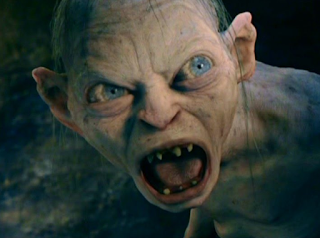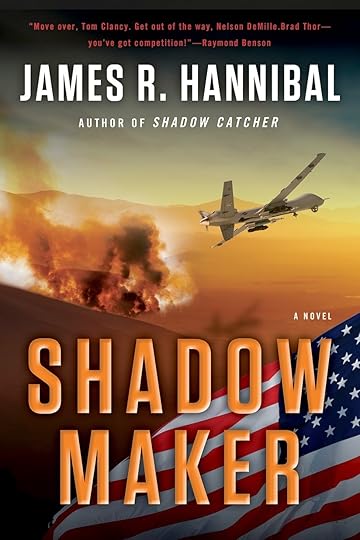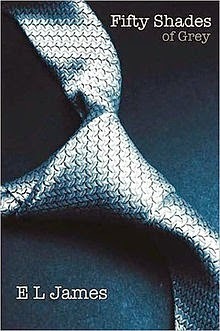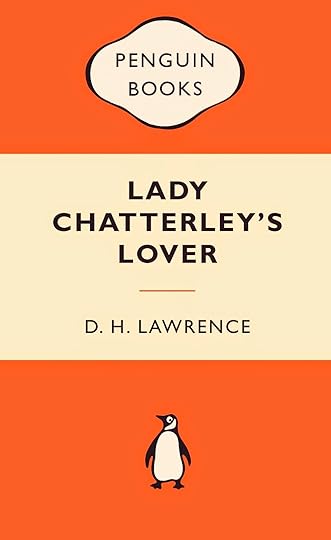James R. Hannibal's Blog, page 3
March 25, 2016
LPO To Be Featured At BEA
March 3, 2016
Book Expo America, the flagship trade show of the publishing industry has announced this year’s 15 picks for the Editor’s Buzz Forums, and THE LOST PROPERTY OFFICE is among them!
“BEA has had a good track record in selecting upcoming bestsellers and I think that once again this crop of authors is likely to become household names in the coming months,” said Steve Rosato, event director. “We’re happy with these selections and look forward to exploring these works further at BEA.”


Published on March 25, 2016 18:50
January 19, 2016
Possessive Names: The Oddity of s's vs s'
Are there any other writers out there who loathe using character names that end in s?"
Not that there aren't dozens of beautiful names with a trailing s. I like Atticus, and I'm also quite fond of my own. And if you're attempting to write about anything concerning the Roman Empire, you can't avoid them: Justus, Ambrosius, Gluteus Maximus. Okay, maybe not the last one. But you get the idea.
Yet one long-standing argument, along with a recent change of stance by the Chicago Manual of Style (CMOS), precludes writers from using such names without suffering a tremendous headache.
Perhaps, by now, you know what I speak of (not "of what I speak," but that's a whole other tirade). Names that end in s have peculiar plural and possessive forms. You've come across this conundrum, I'm sure: "Is that Atticus's book?" or "I'd like to introduce the Williamses."
And it gets worse. What happens when you need to use the plural possessive? "My horse is stabled at the Buckleses's farm."

Oh dear. Suddenly we all sound like cave-dwelling, riddle-loving creatures from Tolkien's Lord of the Rings. "Filthy Bagginses!"
The other option is to remove the extraneous s or es. Yes, this is less accurate from a grammarian's point of view, but it sounds much more natural to our ears. Let's try it again: "Is that James' book?" or "I'd like to introduce the Williams," and especially "My horse is stabled at the Buckles' farm."
Ah. That's better. I no longer feel like the Disney version of Kaa from Kipling's The Jungle Book.
Yes, the above is less accurate if you dig deep. But we don't dig deep in normal conversation, and still the message we intended to convey is unmistakable—thanks to context in speech and the signal of the apostrophe in writing. And a writer will add "family" or "brothers" to "Williams" before making it "Williamses."
I, for one, would rather ignore CMOS' change (or "CMOS's change" by their new convention) and return to their previous preference.
I think we'd all be more comfortable—with the possible exemption of this guy . . .

Not that there aren't dozens of beautiful names with a trailing s. I like Atticus, and I'm also quite fond of my own. And if you're attempting to write about anything concerning the Roman Empire, you can't avoid them: Justus, Ambrosius, Gluteus Maximus. Okay, maybe not the last one. But you get the idea.
Yet one long-standing argument, along with a recent change of stance by the Chicago Manual of Style (CMOS), precludes writers from using such names without suffering a tremendous headache.
Perhaps, by now, you know what I speak of (not "of what I speak," but that's a whole other tirade). Names that end in s have peculiar plural and possessive forms. You've come across this conundrum, I'm sure: "Is that Atticus's book?" or "I'd like to introduce the Williamses."
And it gets worse. What happens when you need to use the plural possessive? "My horse is stabled at the Buckleses's farm."

Oh dear. Suddenly we all sound like cave-dwelling, riddle-loving creatures from Tolkien's Lord of the Rings. "Filthy Bagginses!"
The other option is to remove the extraneous s or es. Yes, this is less accurate from a grammarian's point of view, but it sounds much more natural to our ears. Let's try it again: "Is that James' book?" or "I'd like to introduce the Williams," and especially "My horse is stabled at the Buckles' farm."
Ah. That's better. I no longer feel like the Disney version of Kaa from Kipling's The Jungle Book.

Yes, the above is less accurate if you dig deep. But we don't dig deep in normal conversation, and still the message we intended to convey is unmistakable—thanks to context in speech and the signal of the apostrophe in writing. And a writer will add "family" or "brothers" to "Williams" before making it "Williamses."
I, for one, would rather ignore CMOS' change (or "CMOS's change" by their new convention) and return to their previous preference.
I think we'd all be more comfortable—with the possible exemption of this guy . . .

Published on January 19, 2016 09:07
August 4, 2015
Nick Baron and WRAITH on Kboards...
Wraith and the Nick Baron series appeared on Kboards today. Check out the full post here:
kboards: Discover the "Nick Baron Covert Ops" series!: After a horrible accident kills his wingman, USAF pilot Nick Baron is recruited for Operation Cerberus—a top secret mission that will take h...
kboards: Discover the "Nick Baron Covert Ops" series!: After a horrible accident kills his wingman, USAF pilot Nick Baron is recruited for Operation Cerberus—a top secret mission that will take h...
Published on August 04, 2015 19:27
June 28, 2015
Stop Defending the Confederate Flag - It Makes You Look Racist . . . and Ignorant
[image error]Bruce Smith/Associated PressThe recent battle over what most people think of as the Confederate flag needs to end. In one breath, I would defend your right to fly it, but in the next, I would remind you that flying that flag makes you look racist even if you—in ignorance of its true history—don’t believe it does.
There is no need for a lengthy discourse on the reasons that this popular Confederate battle flag(that’s what it was) is a symbol of racism. The history is alarmingly clear, in a “Why are we still talking about this?” sort of way.
The first and simplest reason that continuing to argue in favor of this flag makes you sound like a racist is the same reason that calling the Civil War the “War for States Rights” and trying to deny that it was fought over slavery makes you sound like a racist. The reason I’m referring to is comprised in the well-documented articles of secession of the Confederate States, which can be easily accessed here.
If you prefer not to do your own easy research, here are quotes take from the declarations of each seceding state. These are not cherry-picked, they are the PRIMARY, and in most cases sole reasons for secession:
Mississippi - “Our position is thoroughly identified with the institution of slavery-- the greatest material interest of the world. Its labor supplies the product which constitutes by far the largest and most important portions of commerce of the earth.”
South Carolina - “But an increasing hostility on the part of the non-slaveholding States to the institution of slavery, has led to a disregard of their obligations, and the laws of the General Government have ceased to effect the objects of the Constitution.”
Georgia - “For the last ten years we have had numerous and serious causes of complaint against our non-slave-holding confederate States with reference to the subject of African slavery. They have endeavored to weaken our security, to disturb our domestic peace and tranquility, and persistently refused to comply with their express constitutional obligations to us in reference to that property [meaning black slaves], and by the use of their power in the Federal Government have striven to deprive us of an equal enjoyment of the common Territories of the Republic.”
Texas – “She was received as a commonwealth holding, maintaining and protecting the institution known as negro slavery-- the servitude of the African to the white race within her limits-- a relation that had existed from the first settlement of her wilderness by the white race, and which her people intended should exist in all future time.”
Virginia – “ . . . having declared that the powers granted under the said Constitution were derived from the people of the United States, and might be resumed whensoever the same should be perverted to their injury and oppression; and the Federal Government, having perverted said powers, not only to the injury of the people of Virginia, but to the oppression of the Southern Slaveholding States.” [Emphasis original]
Yes, as a Texan, that made me cringe, too.
The battle flag that so many today want to preserve was raised as a standard to fly over men who willingly and knowingly allied themselves to the abominable cause listed above as they shed the blood of their fellow men in the name of that cause. There are no ifs, ands, or buts about this singular fact.
To defend that flag by saying that it represents southern pride or tradition is to loudly your ignorance (willing or not) of history and, worse, to assign that ignorance to your entire region.
Stop. You are embarrassing yourself and others.
If the creation of this flag as a bloodletting standard for the cause of slavery is not enough to make you put it down, the second reason ought to.
Those who created the flag as a battle standard for the cause of slavery were too addicted to the economy they had built upon that cause. Those who raised that standard later did not have even that poor excuse to stand upon. They simply raised it as a banner of pure, unadulterated racism.
The battle flag of the Confederacy became the primary symbol of segregationists like the Dixiecrats who battled the civil rights movement. They did not misappropriate some previously adored southern symbol. They correctly chose the single most appropriate symbol for their ugly, inappropriate cause. They used a standard founded upon fighting for the cause of slavery. [image error]In the name of the greatest people that have ever trod this earth, I draw the line in the dust and toss the gauntlet before the feet of tyranny, and I say segregation now, segregation tomorrow, segregation forever. -- George Wallace
I would “hazard” a guess that a large portion of those defending this flag associate it with southern pride purely because of those wily, lovable Duke boys. Guess what, y’all, John Schneider is from New York and Tom Wopat is from Wisconsin.
And yes, I read Cooter’s (Ben Jone’s) article in the New YorkTimes. Keep in mind that the organization he was writing on behalf of, the Sons of Confederate Veterans, supplied some of the segregationists mentioned above, unapologetic racists like William David McCain and Strom Thurmond.
The only group with an innocent heritage argument might be those in Mississippi, because it has been part of their state flag, (even if unofficially) since 1894. However, let's face it, the battle flag was probably added to the Mississippi standard in 1894 by some folks holding a grudge.
Look, folks (and Cooter), “It means something different to me,” is a poor—and frankly millennial—argument (no offense to the millenials). If you saw a guy walking around with a swastika on his shoulder, telling people “It means something different to me,” you might see just how dumb that sounds.
Whether you knew it before today or not, that flag was created as a symbol of violence in the name of one cause and one cause alone: slavery. Let it go.
Published on June 28, 2015 15:45
December 4, 2014
Christmas Gifts for the Military Thriller Lover
 Got a man in your life who loves a submarine book to go with his sub sandwich, a girl who'd rather cozy up by the fire (or take hostile fire) with a Delta team than with Agatha Christie or the Notebook?
Got a man in your life who loves a submarine book to go with his sub sandwich, a girl who'd rather cozy up by the fire (or take hostile fire) with a Delta team than with Agatha Christie or the Notebook? This is the Christmas list you've been looking for.
And don't worry. I know your thriller lover is as multidimensional as a Tom Clancy original, so this list ain't just about books. I've got a wide variety of suggestions for you ranging from a few dollars to a big chunk of the family bank account.
 My agent and my editor would kill me if I didn't lead with a flagrant self-promotion. I do have to admit, though, they worked extremely hard on your behalf to make this first gift affordable. They negotiated Penguin down to a permanent price of only $2.99 (normally it would have been $9.99).
My agent and my editor would kill me if I didn't lead with a flagrant self-promotion. I do have to admit, though, they worked extremely hard on your behalf to make this first gift affordable. They negotiated Penguin down to a permanent price of only $2.99 (normally it would have been $9.99). If your military thriller fan carries his or her library on an e-reader of any kind, you can wrap up and deliver WRAITH via email from your computer or mobile phone. Go to the page, select GIVE AS A GIFT on the right side, and choose your options. It doesn't get much more convenient than that.
Just don't send it while you're in the middle of a chase down I-45.
Not to be discriminatory against herbivores, but in my experience military thriller lovers tend to be meat-eaters.
 Photo via hickoryfarms.com
Photo via hickoryfarms.comYeah. I said it. Military thriller lovers like bacon, steak, and steak wrapped in bacon. And we like to snack on summer sausage while we read about stuff getting' blown up.
That's why I went to Hickory Farms for the next one. You can get your killer any number of meat/cheese combos for prices ranging from $20-$90. If you want to get creative, make a bow out of bacon and slap it on there.
Honey, if you're reading this, I'll take the Beef Hearty Hickory Gift Basket (or any basket of equal or greater beef-sausage content).
A lot of the mil-thrill lovers in our lives served their country longer than the heroes in the books they read.
Along the way, they have collected perhaps a dozen or more Challenge Coins (sometimes a lot more). On Amazon, you can get your hero a sweet display case for those coins. That way the coins (and maybe some patches) can finally come out of that shoebox in the closet. There are a number of options ranging from $15-$45.

Does your mil-thrill lover have a thing for drones?
You could always send a copy of SHADOW MAKER ('cause... you know... the guy who wrote the book actually hunted bad guys with them).
Or, if the book isn't quite what you're looking for...
How about giving your drone-o-phile a no-kidding drone!
 Photo via Amazon.com
Photo via Amazon.comDepending on how crazy you want to go, you can get a drone on Amazon for anywhere from $60-$1500.
To avoid the inevitable corrections from my squadron buddies, I must say that these drones—just like the one I flew—are not technically "drones" at all. To qualify they would have to be semi-autonomous members of a digital hive-mind (enter Skynet). They are just remote control aircraft with cameras (and in the Predator's case - laser guided missiles). However "drone" is what the kids are calling 'em these days, so what's an RPA pilot to do?
If your mil-thrill lover likes to envision himself as part of the action, why not help him out?
You can send a photo to www.giveacaricature.com and tell them what you'd like your hero to be doing. They'll draw it, frame it, and send it out for you! Prints start at $99 and framed prints start at $142. Honey, for this one, have them draw me in a knife fight with a terrorist master-mind, just like in WRAITH.
Ooh! speaking of knife fights...
What mil-thrill lover wouldn't want a good combat/hunting knife?
Let me suggest the two that I have carried longest.
In WRAITH Nick Baron fought Tariq al-Majid with a Buck Special
 Photo via buckknives.com(model 119). I chose that knife because I wore it into combat and on survival in the Black Forest and in the Rockies. I've had that thing for nearly twenty-years. It has seen sand, granite, pine, rabbit, and fish-guts and it still looks brand new. You can get a Buck Special with a nice sheath directly from Buck for about $90. Or you can buy the knife and sheath individually from Amazon for $47 and $16 respectively.
Photo via buckknives.com(model 119). I chose that knife because I wore it into combat and on survival in the Black Forest and in the Rockies. I've had that thing for nearly twenty-years. It has seen sand, granite, pine, rabbit, and fish-guts and it still looks brand new. You can get a Buck Special with a nice sheath directly from Buck for about $90. Or you can buy the knife and sheath individually from Amazon for $47 and $16 respectively. The other knife that you can't go wrong with is a Ka-Bar. Tried and true, the best Ka-Bar for the money is this one, which you can get from Amazon along with its hard sheath for only $55. I used this very same knife to make several traps and snares when our boys book club read Jean Craighead George's My Side of the Mountain earlier this year.
Of course, if you're going to get a guy a knife (or a gal a knife—if she's into that sort of thing), you might as well throw in a knife sharpener. What action hero wants to go into a fight with a dull knife? Try this one, a great stocking stuffer from Amazon, for only $10.
For the seriously traditional mil-thrill lover, why not go with the original military thriller king?
 Photo via barnesandnoble.com
Photo via barnesandnoble.comOn Barnes and Noble you can get the boxed set of Tom Clancy's first three Jack Ryan thrillers for only $30. The Clancy-verse is still expanding, and these old boxed sets are getting harder to find.
Another package deal that's hard to beat is the Wraith Collector's Package.

You can get it from TeachAndEquip.com, including a Stealth Command T-shirt, a signed-numbered hardcover of WRAITH (one of the first 50 ever printed), and a Triple Seven Chase covert ops patch inspired by the book. This package is already a steal at $52.99, and with the coupon code MERRY, it's an additional 20% off!
Now for the serious giver.
Want to blow your mil-thrill lover's mind on Christmas morning?
Make your hero a real black ops star
with one or both of these two pricy gems:
How about an Apple Watch. There isn't another tech-lover's gift out there that is going to top this for the money. Sure, you can't exactly hand one over on Christmas morning (you can't even order one until "early 2015"), but you can stuff a card with the most well-appreciated IOU of your life!
The Apple Watch will run apps like an iPhone, keep your hero fit, send messages, and basically do more than most spy heroes could ever ask of a watch. Seriously.
They'll start at $349... when you can buy one... which will definitely not be before Christmas... but they're still extremely cool.
 And, finally, if you really want your hero to look and feel like Nick Baron in SHADOW CATCHER, you can't go wrong with these Armasight Nyx7-ID Gen 2+ Night Vision Goggles. Sure, they're military-grade equipment, worth more at $1749 than you're spending on all your kids combined, but your hero is worth it, right?
And, finally, if you really want your hero to look and feel like Nick Baron in SHADOW CATCHER, you can't go wrong with these Armasight Nyx7-ID Gen 2+ Night Vision Goggles. Sure, they're military-grade equipment, worth more at $1749 than you're spending on all your kids combined, but your hero is worth it, right? Oh, if you do happen to buy these particular NVGs, DO NOT ship them outside the United States without permission from the State Department. Just a word of caution.
So that's it.
In a nutshell: give your mil-thrill aficionado a Penguin Books black ops stealth thriller, easily ordered and sent from your phone for a sweet and budget-friendly $3, or gift them a $1750 set of NVGs that will get them arrested if they try to take them out of the country. Seems like a simple choice :-)
Merry Christmas, Everybody,
James "Santa Clause" Hannibal
Published on December 04, 2014 17:05
October 30, 2014
A NEW LOOK AT NICK BARON'S PAST

The adventure that launched Nick Baron’s Triple Seven Chase from test squadron to black ops team releases on e-book next Tuesday from Berkley Books at Penguin Random House.
Haven't we seen Wraith before?
Sort of.
But not this Wraith.
The original version of Wraith was supposed to be a fun experiment. I had written short stories, poetry, and some classified technical manuals, but I wanted to know if I could write a novel. Frustratingly, somewhere along the way, I forgot that it was supposed to be a fun experiment, and started believing I was a real author.
I arrogantly thought I knew all that I needed to know about writing. A year and a half of querying literary agents without so much as a nibble should have been a good indication that I was not, but it barely scratched the hardened veneer of my hubris. Instead it sent me into the waiting arms of a small, independent publisher.
By the end of 2009, Wraith had successfully landed on the desk of TotalRecall Press. Once publication was immanent, Clive Cussler and Publishers Weekly both agreed to read the manuscript. They made some nice comments, but that was purely upon their grace and the grace of God, not upon the merits of my writing.
It was not until I reached ThrillerFest in July 2010, after Wraith had already hit the shelves, that I realized what a big mistake this all was. Meeting real authors that had spent years honing their craft opened my eyes and shattered my arrogance. You can read more about that humbling experience on the ITW website here. I realized on that trip that Wraith should never have been published, but my realization came too late.
 I spent the next couple of years working at my craft, absorbing all that I could and creating the Triple Seven Chase anew—starting ten years down the road as their covert ops journey came full circle. You may know that story as Shadow Catcher. I spent the rest of my free time trying to get Wraith off the bookshelves. I absolutely did not want it to be there. I was only partially successful. There are still used hardcovers and bootleg PDFs floating around.
I spent the next couple of years working at my craft, absorbing all that I could and creating the Triple Seven Chase anew—starting ten years down the road as their covert ops journey came full circle. You may know that story as Shadow Catcher. I spent the rest of my free time trying to get Wraith off the bookshelves. I absolutely did not want it to be there. I was only partially successful. There are still used hardcovers and bootleg PDFs floating around. Fast forward to 2014. A few months ago, Berkley agreed to release a re-vamped, digital version of Wraith as the prequel to the Nick Baron series. I worked my fingers to the bone and tried the patience of my employers and my family to bring the book up to the level worthy of publication before the deadline. I also brought Wraith in line with the Triple Seven Chase as it exists in Shadow Catcher and Shadow Maker.
Fast forward to 2014. A few months ago, Berkley agreed to release a re-vamped, digital version of Wraith as the prequel to the Nick Baron series. I worked my fingers to the bone and tried the patience of my employers and my family to bring the book up to the level worthy of publication before the deadline. I also brought Wraith in line with the Triple Seven Chase as it exists in Shadow Catcher and Shadow Maker.That is the difference between the used hardcover and paperback Wraith on Amazon and the new e-book. The action and characters now comprise a prequel to Shadow Catcher, and, in my personal opinion, the new Wraith is much more worthy of your time as a reader.
I hope that you will consider taking a look at this new Wraith, or sharing it with a family member (like everything I write, it is free of sex and foul language and safe for your teens and your mom). Above all, I hope that you will enjoy discovering the origins of Nick Baron’s Triple Seven Chase as much as I enjoyed re-creating them.
God Speed and Thanks for Reading,
James R. Hannibal
Published on October 30, 2014 16:54
July 29, 2014
US Diplomacy in Israel: How Far We've Fallen
Published on July 29, 2014 14:30
July 17, 2014
Responsibility in Contemporary Fiction
@font-face { font-family: "MS 明朝"; }@font-face { font-family: "MS 明朝"; }@font-face { font-family: "Cambria"; }p.MsoNormal, li.MsoNormal, div.MsoNormal { margin: 0in 0in 0.0001pt; font-size: 12pt; font-family: Cambria; }p.MsoFootnoteText, li.MsoFootnoteText, div.MsoFootnoteText { margin: 0in 0in 0.0001pt; font-size: 12pt; font-family: Cambria; }span.MsoFootnoteReference { vertical-align: super; }span.FootnoteTextChar { }span.woj { }.MsoChpDefault { font-family: Cambria; }div.WordSection1 { page: WordSection1; }
“With great power, comes great responsibility.”
Strange that such wisdom should arise from a comic book. In reality, it did not. That proverb comes from a source of wisdom more widely acknowledged than Spider-Man, but more on that later. For now, let us focus on the truth of the phrase, and recognize its intrinsic irony: that the American literary community—the very community that popularized this proverb—cannot seem to remember it.
What is this great power that our literary community holds?
It is that freedom guaranteed by the First Amendment of the Constitution of the United States—a great power indeed. And if art in its many forms is the application of that power, then surely the written word is one of its most potent variants.
What a person reads—in particular what that person reads habitually—has enormous influence over his or her thoughts and behavior.
Reading fiction causes the brain to simulate interaction with the characters via emotion and empathy, to the extent that one recent study showed that even a short story could cause a measurable change in the reader’s personality. So, with the capacity to affect millions of real people all at once, and even change personalities, that marvelous power of the written word is far greater than any possessed by a comic book hero. Yet when wielded with selfish intent and without concern for consequence, that same power can and does degrade rather than strengthen the fabric of society.
Therein lies the responsibility.
Sadly, history and current events show that the American literary community has not handled this responsibility well. The steady increase of sex in literature, the increasing depravity in the manner that sex is depicted, and the degradation of the English language itself should give any literary historian or sociologist great pause.
Indeed, these trends have given historians and sociologists pause.
In 1959, noted Harvard literary historian Douglas Bush described the growing use of sex in fiction like this:
The exploitation of unadulterated sex should be called a new toy… If, a century from now, the social historian should read many best sellers of our time, he would be forced to conclude that male and female Americans of this period were wholly engaged in amorous and extramarital affairs, with incidental excursions into business, politics, war... The emotional and moral tension that might be set up by an effort at self-control hardly comes into the contemporary view of human nature. Bush’s contemporary, Harvard sociologist Pitirim Sorokin, put it this way:
Not until the twentieth century did American literature become sex-centered and sex-preoccupied, and in its low-grade variety a sham for commercial exploitation. . . . Many of these authors display the erotic excesses and disloyalties of their characters as perfectly normal . . . By such treatment, modern literature disinhibits rather than wisely restrains lust. It undermines rather than vitalizes marriage and the family… it demoralizes rather than integrates the total personality. To be clear, neither Bush nor Sorokin spoke against the inclusion of sex in literature. Rather, they spoke out against the irresponsibility in how sex was treated and described in literature.
How telling that these respected voices sounded their warning more than fifty years ago. How prophetic!

Were they alive today, both men might observe the moral decay in American society with an air of “I told you so,” and Bush might point to E.L. James’s Fifty Shades of Grey as the pinnacle of the trends in literature he wrote about.
Fifty Shades of Grey is undoubtedly influential. Despite nearly universal agreement in the literary community that the quality of its prose is poor, when ranked by volume of sales over time, it is among the top selling books in history Unfortunately, Bush’s imagined view of E.L. James’s work as a pinnacle of his literary trend would be optimistic. The sociologist Sorokin would argue that the trend had not peaked, but must continue. The many traditional and self-published copycats of Fifty Shades of Grey indicate that the book has set a new societal norm, just as D.H. Lawrence’s Lady Chatterley’s Lover did when it finally hit the British and American markets in the 1960s. Societal norms are not peaks, but new foundations, for good or ill.
Unfortunately, Bush’s imagined view of E.L. James’s work as a pinnacle of his literary trend would be optimistic. The sociologist Sorokin would argue that the trend had not peaked, but must continue. The many traditional and self-published copycats of Fifty Shades of Grey indicate that the book has set a new societal norm, just as D.H. Lawrence’s Lady Chatterley’s Lover did when it finally hit the British and American markets in the 1960s. Societal norms are not peaks, but new foundations, for good or ill.
With each new norm established, the literary community and the publishing industry must seek to shock the world again for the sake of maintaining relevance and profitability. Fifty Shades of Grey is merely the latest iteration of the cycle. It is by no means the peak or the end, and that is a disturbing notion. If overt sadomasochism is now “okay,” and the downward spiral continues, where will we be in another fifty years?
Profanity in literature has followed much the same course.
Like sexual promiscuity and depravity, the more profanity abounds in literature, the more it abounds in society, and—again—the more it abounds in literature. It is another ongoing cycle.
At one time, a foul word in fiction might have served a useful purpose to create realism or emphasize dialogue and action, though there are many other ways to do both. The use of profanity was an artistic choice.
Today, however, profanity fills the page like so much spackling hastily pressed into the gaps of a poorly fashioned sculpture. It has become both expected and banal. Worse, with its commonality in mainstream fiction, profanity serves to degrade the personal and public conversations of society so that, as a whole, Americans are not as well spoken as we once were—another demonstration of the power of the written word.
With great power comes great responsibility.
Like the comic hero, we have the responsibility to use our power for good, rather than harm, to build rather than destroy.
Is there any doubt that depravity in fiction is destructive?
To argue that Fifty Shades of Grey and the many microscopic imitations shoe-horned into mainstream fiction for the sake of saleability benefit society rather than tear at its very flesh is to take a position of intentional ignorance. There is art, there is greed, and there is pure foolishness. Digging down to the raw truth of it, the latter two exclude the first.
With great power comes great responsibility.
If the literary community ignores its responsibility to society for the sake of one-upmanship, and the publishing industry neglects the same responsibility to society for the sake of the bottom line, then the weight of that responsibility rests squarely on the shoulders of the individual author.
Thanks a lot.
What a terrible conundrum. More than anyone in the literary community, individual fiction authors feel the pressure to use sex and profanity in their work.
In 2010, at a major literary conference in New York, mega-bestseller Ken Follett told a ballroom full of aspiring authors that they could not sell a novel if it did not include a graphic sex scene. Thus, authors that refuse to depict sex in their books have been put on notice that their work won’t sell. Additionally, authors that refuse to use profanity in their work are mocked as lacking literary merit, despite having to work harder to create grit and characterization.
The pressure from the literary community and the literary market to abuse our power is real, so authors must make a hard choice to accept or shun their responsibility to society.
I, for one, choose to accept it. I might take a hit on sales. I will definitely take abuse from the critics. But I do not write for cash registers or reviewers.
I write for the man who seeks a healthy escape to a fictional world after a long day at work. I write for the woman who wants to block out the oppressive atmosphere of the coach section of a commercial flight. I write for the teen seeking a story that is a little meatier than a child wizard or a lovesick vampire, and seeking a hero that a kid can believe in.
With great power comes great responsibility.
No, this proverb did not originate with Spider-Man. Well before Uncle Ben, 19th century British politicians used it as a mantra. The Brits, in turn, adapted the sentiment from a world authority on wisdom. That authority is Christ Jesus:
Luke 12:48b (NIV) - From everyone who has been given much, much will be demanded; and from the one who has been entrusted with much, much more will be asked.
And to those other writers still on the fence about their responsibility to society, let me offer another quote from the same source:
Matthew 18:7 (NIV) - Woe to the world because of the things that cause people to stumble! Such things must come, but woe to the person through whom they come!
James R. Hannibal is a counterterrorism expert, former stealth and drone pilot, and the author of the critically acclaimed Nick Baron covert ops thrillers that are free of sex and profanity.
“With great power, comes great responsibility.”
Strange that such wisdom should arise from a comic book. In reality, it did not. That proverb comes from a source of wisdom more widely acknowledged than Spider-Man, but more on that later. For now, let us focus on the truth of the phrase, and recognize its intrinsic irony: that the American literary community—the very community that popularized this proverb—cannot seem to remember it.
What is this great power that our literary community holds?
It is that freedom guaranteed by the First Amendment of the Constitution of the United States—a great power indeed. And if art in its many forms is the application of that power, then surely the written word is one of its most potent variants.
What a person reads—in particular what that person reads habitually—has enormous influence over his or her thoughts and behavior.
Reading fiction causes the brain to simulate interaction with the characters via emotion and empathy, to the extent that one recent study showed that even a short story could cause a measurable change in the reader’s personality. So, with the capacity to affect millions of real people all at once, and even change personalities, that marvelous power of the written word is far greater than any possessed by a comic book hero. Yet when wielded with selfish intent and without concern for consequence, that same power can and does degrade rather than strengthen the fabric of society.
Therein lies the responsibility.
Sadly, history and current events show that the American literary community has not handled this responsibility well. The steady increase of sex in literature, the increasing depravity in the manner that sex is depicted, and the degradation of the English language itself should give any literary historian or sociologist great pause.
Indeed, these trends have given historians and sociologists pause.
In 1959, noted Harvard literary historian Douglas Bush described the growing use of sex in fiction like this:
The exploitation of unadulterated sex should be called a new toy… If, a century from now, the social historian should read many best sellers of our time, he would be forced to conclude that male and female Americans of this period were wholly engaged in amorous and extramarital affairs, with incidental excursions into business, politics, war... The emotional and moral tension that might be set up by an effort at self-control hardly comes into the contemporary view of human nature. Bush’s contemporary, Harvard sociologist Pitirim Sorokin, put it this way:
Not until the twentieth century did American literature become sex-centered and sex-preoccupied, and in its low-grade variety a sham for commercial exploitation. . . . Many of these authors display the erotic excesses and disloyalties of their characters as perfectly normal . . . By such treatment, modern literature disinhibits rather than wisely restrains lust. It undermines rather than vitalizes marriage and the family… it demoralizes rather than integrates the total personality. To be clear, neither Bush nor Sorokin spoke against the inclusion of sex in literature. Rather, they spoke out against the irresponsibility in how sex was treated and described in literature.
How telling that these respected voices sounded their warning more than fifty years ago. How prophetic!

Were they alive today, both men might observe the moral decay in American society with an air of “I told you so,” and Bush might point to E.L. James’s Fifty Shades of Grey as the pinnacle of the trends in literature he wrote about.
Fifty Shades of Grey is undoubtedly influential. Despite nearly universal agreement in the literary community that the quality of its prose is poor, when ranked by volume of sales over time, it is among the top selling books in history
 Unfortunately, Bush’s imagined view of E.L. James’s work as a pinnacle of his literary trend would be optimistic. The sociologist Sorokin would argue that the trend had not peaked, but must continue. The many traditional and self-published copycats of Fifty Shades of Grey indicate that the book has set a new societal norm, just as D.H. Lawrence’s Lady Chatterley’s Lover did when it finally hit the British and American markets in the 1960s. Societal norms are not peaks, but new foundations, for good or ill.
Unfortunately, Bush’s imagined view of E.L. James’s work as a pinnacle of his literary trend would be optimistic. The sociologist Sorokin would argue that the trend had not peaked, but must continue. The many traditional and self-published copycats of Fifty Shades of Grey indicate that the book has set a new societal norm, just as D.H. Lawrence’s Lady Chatterley’s Lover did when it finally hit the British and American markets in the 1960s. Societal norms are not peaks, but new foundations, for good or ill. With each new norm established, the literary community and the publishing industry must seek to shock the world again for the sake of maintaining relevance and profitability. Fifty Shades of Grey is merely the latest iteration of the cycle. It is by no means the peak or the end, and that is a disturbing notion. If overt sadomasochism is now “okay,” and the downward spiral continues, where will we be in another fifty years?
Profanity in literature has followed much the same course.
Like sexual promiscuity and depravity, the more profanity abounds in literature, the more it abounds in society, and—again—the more it abounds in literature. It is another ongoing cycle.
At one time, a foul word in fiction might have served a useful purpose to create realism or emphasize dialogue and action, though there are many other ways to do both. The use of profanity was an artistic choice.
Today, however, profanity fills the page like so much spackling hastily pressed into the gaps of a poorly fashioned sculpture. It has become both expected and banal. Worse, with its commonality in mainstream fiction, profanity serves to degrade the personal and public conversations of society so that, as a whole, Americans are not as well spoken as we once were—another demonstration of the power of the written word.
With great power comes great responsibility.
Like the comic hero, we have the responsibility to use our power for good, rather than harm, to build rather than destroy.
Is there any doubt that depravity in fiction is destructive?
To argue that Fifty Shades of Grey and the many microscopic imitations shoe-horned into mainstream fiction for the sake of saleability benefit society rather than tear at its very flesh is to take a position of intentional ignorance. There is art, there is greed, and there is pure foolishness. Digging down to the raw truth of it, the latter two exclude the first.
With great power comes great responsibility.
If the literary community ignores its responsibility to society for the sake of one-upmanship, and the publishing industry neglects the same responsibility to society for the sake of the bottom line, then the weight of that responsibility rests squarely on the shoulders of the individual author.
Thanks a lot.
What a terrible conundrum. More than anyone in the literary community, individual fiction authors feel the pressure to use sex and profanity in their work.
In 2010, at a major literary conference in New York, mega-bestseller Ken Follett told a ballroom full of aspiring authors that they could not sell a novel if it did not include a graphic sex scene. Thus, authors that refuse to depict sex in their books have been put on notice that their work won’t sell. Additionally, authors that refuse to use profanity in their work are mocked as lacking literary merit, despite having to work harder to create grit and characterization.
The pressure from the literary community and the literary market to abuse our power is real, so authors must make a hard choice to accept or shun their responsibility to society.
I, for one, choose to accept it. I might take a hit on sales. I will definitely take abuse from the critics. But I do not write for cash registers or reviewers.
I write for the man who seeks a healthy escape to a fictional world after a long day at work. I write for the woman who wants to block out the oppressive atmosphere of the coach section of a commercial flight. I write for the teen seeking a story that is a little meatier than a child wizard or a lovesick vampire, and seeking a hero that a kid can believe in.
With great power comes great responsibility.
No, this proverb did not originate with Spider-Man. Well before Uncle Ben, 19th century British politicians used it as a mantra. The Brits, in turn, adapted the sentiment from a world authority on wisdom. That authority is Christ Jesus:
Luke 12:48b (NIV) - From everyone who has been given much, much will be demanded; and from the one who has been entrusted with much, much more will be asked.
And to those other writers still on the fence about their responsibility to society, let me offer another quote from the same source:
Matthew 18:7 (NIV) - Woe to the world because of the things that cause people to stumble! Such things must come, but woe to the person through whom they come!
James R. Hannibal is a counterterrorism expert, former stealth and drone pilot, and the author of the critically acclaimed Nick Baron covert ops thrillers that are free of sex and profanity.
Published on July 17, 2014 20:28
July 1, 2014
A US Child Murdered by US Funded Terrorists: An open letter to Secretary of State John Kerry
 Photo courtesy Israeli Defense Forces
Photo courtesy Israeli Defense ForcesThe teens kidnapped by Hamas have been found. Murdered. The terrorists left their bodies in a ditch to rot. One of them was a US citizen.
The President of the United States has condemned this act and acknowledged that the IDF's mounting evidence points to Hamas. Hamas has denied the accusation and yet celebrated—rather exulted—in the kidnappings and killings.
Yet, our State Department is continuing to send foreign aid to Hamas through the unity government it formed with the Palestinian Authority. $440 million will go to this terrorist government in 2014 alone. How is this possible? Where is the outcry?
I have spent the morning writing every politician I can think of to ask what they are doing to stop our State Department from funding terrorists who have shown a willingness to attack not just our allies, but our own citizens. Sending money to these terrorists is an act of treason.
I also wrote Secretary of State John Kerry directly. The letter is below.
Secretary Kerry, I am certain that you have seen the news this morning. Three children are dead—one of them held US citizenship. Hamas, a terrorist organization, is behind the killings, along with more rocket attacks in recent days. You called the kidnappings of these children a "despicable terrorist act."
And yet you have gone to great lengths to ensure that foreign aid continues to flow to the Palestinian Authority unity government, a government that now includes these "despicable" terrorists. Frankly, your money and your mouth just don't agree.
Stop funding Hamas via the Palestinian Authority. If I donated thousands, even hundreds, to Hamas or Hezbollah, you would brand me a traitor and lock me in jail. You, sir, are sending hundreds of millions to terrorists who within weeks of striking that deal turned on you and kidnapped and killed one of your own citizens. Are you a traitor, sir? You certainly look like one to me.
Published on July 01, 2014 07:58
June 22, 2014
Amazing, Spot-on Response to the "Peaceful Islam" Argument
YouTube Link
This is an amazing monologue that every American needs to hear.
But I'd like to add an important point:
The statistic Brigitte cites for radicalized Islam is commonly quoted and terribly misleading. 15-25% of Muslims are radicalized by many intelligence accounts. More politically correct polls reduce that figure to 7%. But neither estimate accounts for a much larger percentage that favors the actions of those radical Muslims.
The number that quietly and intellectually supports the radicals is significantly harder to quantify. Certainly it depends on what exactly constitutes "radicalized" and what questions you ask in a poll.
This excellent article on WikiIslam compiles some of the data, showing that the figure of supporters of radical Islam can range from 40% to almost 90% depending on the poll and on the country you're in. For instance, polling indicates that 87% of Pakistanis believe that Muslims who convert to another religion should be killed.
To use the words that a wise individual once said to me, "Saying that only 15% of Muslims are radical because only that number actively participates in radical activities is like saying only 15% of Americans support abortion because only 15% are active abortion lobbyists or work for Planned Partenthood."
God Bless,
James R. Hannibal
Published on June 22, 2014 18:58




